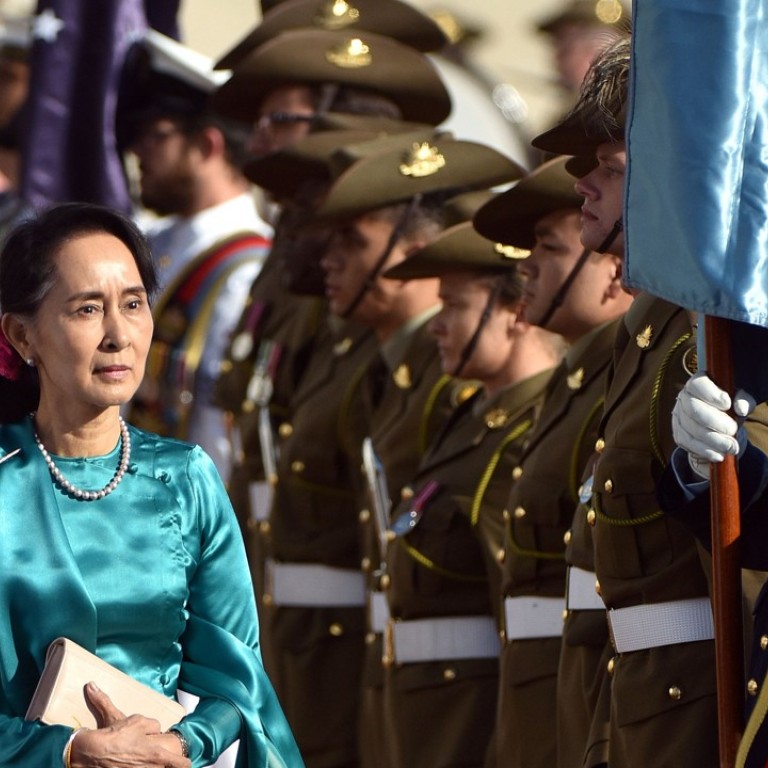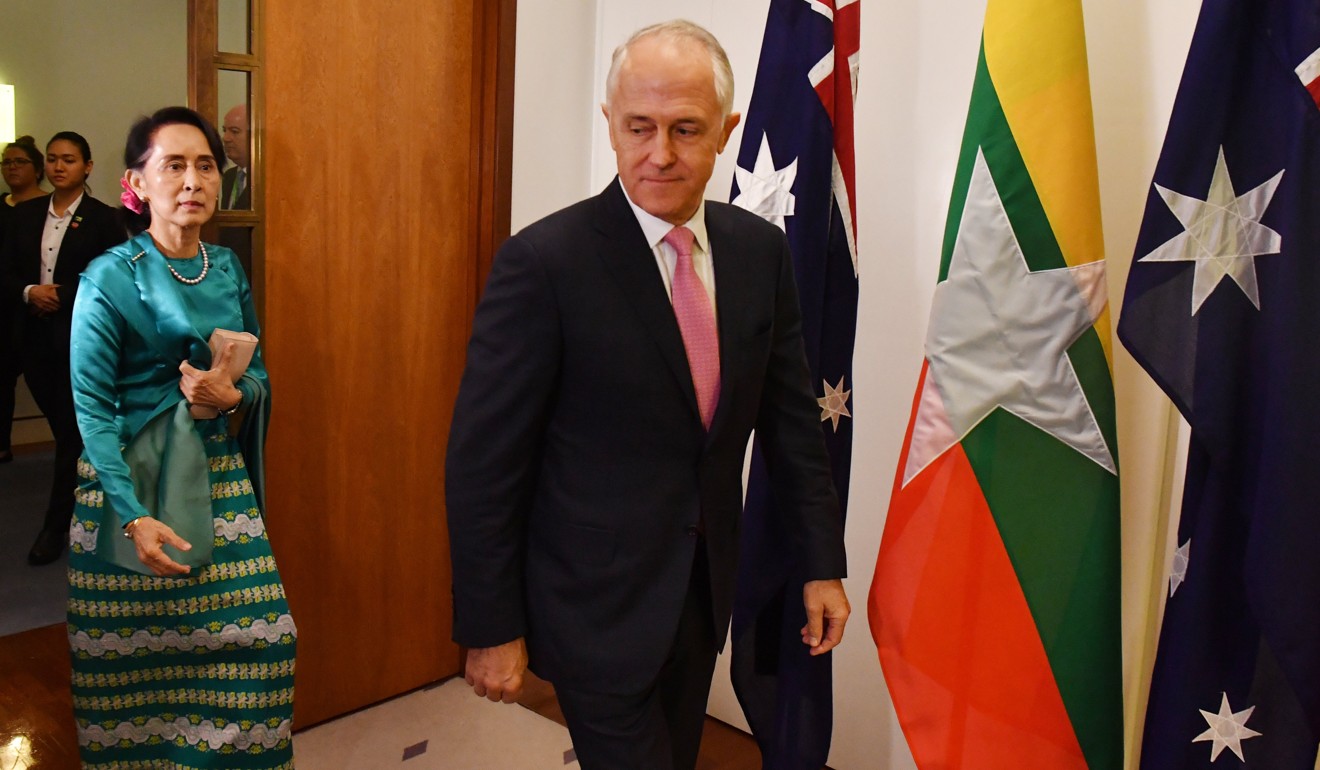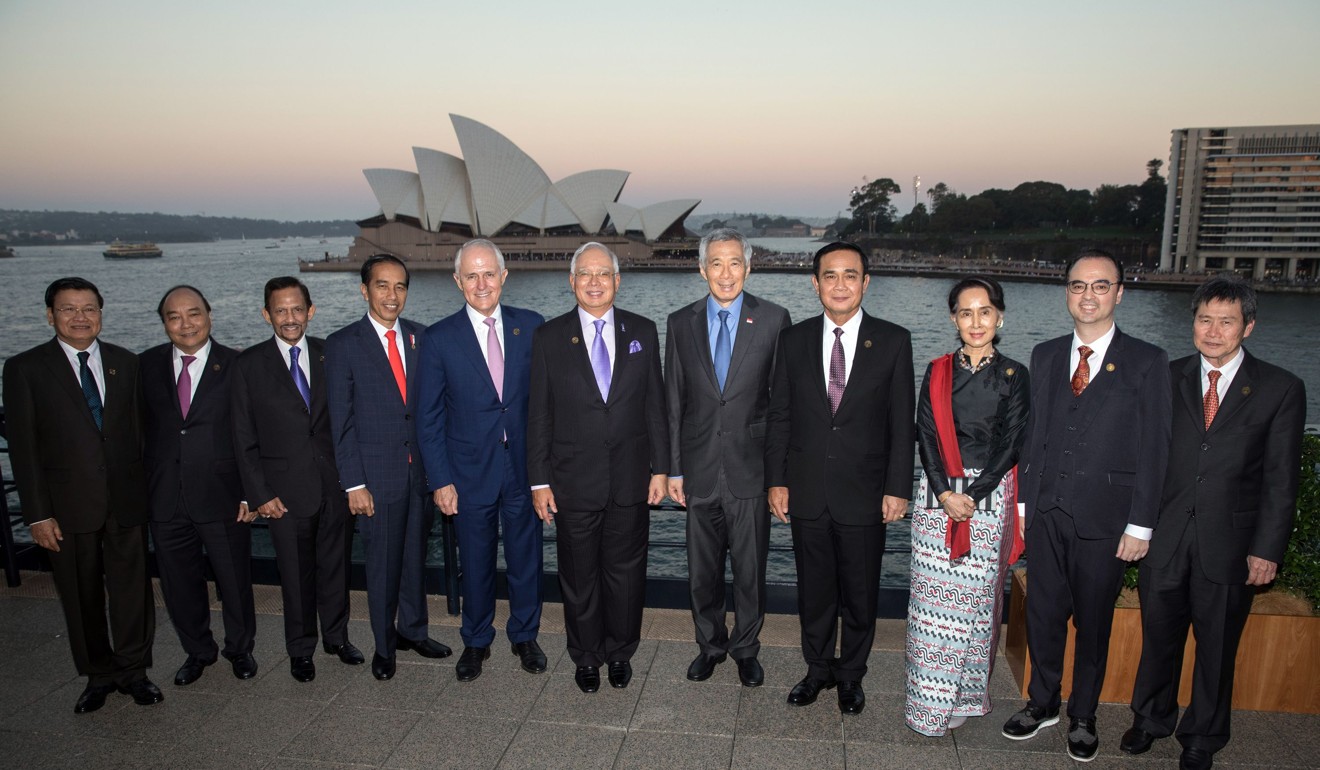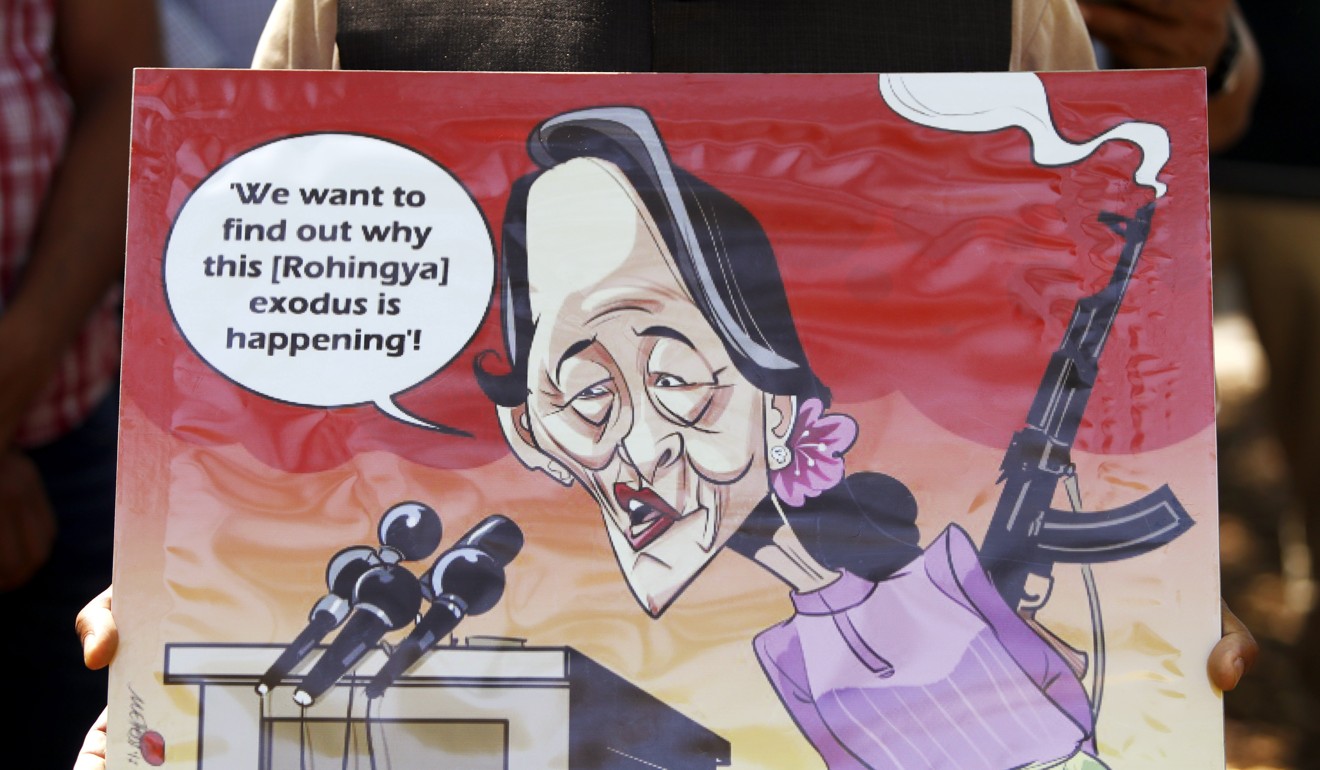
Australia’s greeting for Myanmar’s Aung San Suu Kyi: an honour guard, protests and a lawsuit
There was no press conference with Australian Prime Minister Malcolm Turnbull nor any public comment from Suu Kyi during her brief visit to the national capital on Monday
Myanmar leader Aung San Suu Kyi’s was feted in Australia on Monday with a military honour guard and 19-gun salute as part of a state visit that has provoked protests over her response to her country’s violent campaign against Rohingya Muslims.
Suu Kyi arrived in Sydney over the weekend for a summit of Southeast Asian leaders and her state visit officially began Monday as she was welcomed to Parliament House in Canberra.
Her visit comes as she faces international criticism over what has become Asia’s worst refugee crisis in decades.
More than 700,000 Rohingya have fled from Buddhist-majority Myanmar to neighbouring Bangladesh since August, when the military responded to insurgent attacks on police with a clearance operation that the UN has described as ethnic cleansing.
The campaign has included the burning of Rohingya villages, systematic rape, shootings and other rights violations.

There was no press conference with Australian Prime Minister Malcolm Turnbull nor any public comment from Suu Kyi during her brief visit to the national capital on Monday. She had meetings with the prime minister and opposition leader.
She later pulled out of a public speech and question-and-answer session in Sydney because she was “not feeling well”, the Lowy Institute think-tank said.
The Australian prime minister had a detailed, constructive meeting with Suu Kyi in which the pair discussed the ongoing humanitarian crisis in Rakhine state.
Turnbull encouraged the state counsellor to reach a resolution for the resettlement of the displaced people of the region.

In Sydney, her presence drew street protests and a lawsuit accusing her of crimes against humanity.
Malaysian Prime Minister Najib Razak told the summit the refugee crisis was no longer solely a domestic issue for Myanmar, as fleeing Rohingya could be prime targets for terrorist radicalisation.
Myanmar staunchly denies that its security forces have targeted Rohingya civilians and Suu Kyi has bristled at the international criticism.
But Myanmar’s denials have appeared increasingly tenuous as horrific accounts from refugees have accumulated and satellite imagery and other evidence of destroyed Rohingya villages have been assembled.
Reports last month documented through video and witness accounts at least five mass graves of Rohingya civilians. Witnesses said the military used acid to erase the identity of victims. The government denied it, maintaining that only “terrorists” were killed and then “carefully buried”.

Suu Kyi, a Nobel Peace laureate, was a long-time political prisoner of Myanmar’s former junta and frequently called for international intervention in her country during her almost 15 years under house arrest.
She was released in 2010 and last visited Canberra in 2013 on an Australian tour when she was widely lauded, before she was allowed to stand for an election that her party eventually won in a landslide.
Then-Prime Minister Tony Abbott described her as an “icon of democracy” as he stood by her side at a joint press conference. Foreign Minister Julie Bishop said Suu Kyi had inspired her to enter politics.
Suu Kyi’s global image has since taken a battering. She has seen several international honours she was given in the past revoked. Several fellow peace prizewinners have publicly condemned her.
Associated Press, Reuters, Agence France-Presse, The Guardian
